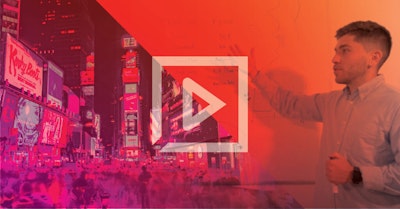
Rachel Foskett, senior product marketing manager quizzes Georgie Haig, product lead, identity on the latest Google statement on the phase out of cookies
RF: So, what did Google actually announce?
GH: Up to now, the industry has been working towards the end of 2021 as the deadline for using cookies in Chrome. But in a blog post on 24th June, Google has pushed that date back until late 2023 – almost two years later than originally planned.
RF: Why has the delay happened?
GH: Mainly, it seems to be a response to the UK’s Competitive & Market Authority (CMA) investigation into the possible anti-competitive impact of Chrome’s Privacy Sandbox. Specifically, it appears to be part of a promise by Google to the CMA to publicly disclose timings related to their Privacy Sandbox proposals and give notice of a transition period before they finally phase out third-party cookies. The move also buys them more time to thoroughly test the impact of Privacy Sandbox solutions like FLoC.
RF: But there are other factors too?
GH: Yeah, there are definitely a number of other factors that contributed to the decision. The European Commission will also be launching an antitrust investigation that looks into Google’s Privacy Sandbox, with concerns around privacy and the automatic opt-in of FLoC cohorts, among other things. Added to this, a growing number of states are joining a lawsuit against Google for breaking antitrust laws. And that’s without the direct pressure from large brands themselves who don’t feel prepared for the cookieless world.
RF: This isn’t the first time they’ve dropped a major announcement that changes marketers’ thinking, is it?
GH: No. Back in March, their ‘bombshell’ was the announcement that Google would not support industry unified IDs for ad-buying – so this is another instance of the industry figuring out what to do in a fluid situation.
RF: And so, beyond the ‘big’ news, was there anything in the latest announcement that will offer any more clarity about the future of identity?
GH: Yes. The pushback grabbed the headlines, but there was a lot more in there in terms of the details about how cookie deprecation will happen. So, publishers and advertisers will be expected to migrate to new addressability and measurement solutions over a nine-month period starting late 2022, before Chrome phases out third-party cookie support over a final three-month period, in mid-late 2023. But – and this is a significant caveat – this will only happen after Chrome’s Privacy Sandbox solutions have been fully tested and deployed.
They also said they will hold off on testing Privacy Sandbox solutions in the short term, with the current FLoC trial now set to conclude on July 13th. The company plans to make improvements on FLoC before opening up for further testing.
RF: So, what does it mean for marketers? Can they be a bit more relaxed in preparing for a digital ad ecosystem without cookies?
GH: There will certainly be that temptation – but it would be a big mistake. Shifting to cookieless strategies and other data sources can be complicated and requires smart thinking and testing, so some marketers might just stick with their tried-and-tested methods for a while longer. But this isn’t a chance of direction. Cookies are still on the way out, so it’s important to stay focused on the future.
Plus, we know third-party cookies were never that good as a solution for really communicating with consumers. They’re a big reason why so many people have lost trust in advertising in the first place – so why keep using them?
For advertisers, the next two years will fly by, and third-party cookies will continue to fade away throughout that time. Safari and Firefox have already stopped using, and more and more Chrome users are opting not to be tracked. So, in terms of preparing for the cookieless future, this shouldn’t really change anything.
RF: How far along the road are we to having non-cookies targeting solutions?
GH: Well, what we’re finding from our testing is that cookieless solutions can actually provide more scale, more intelligence, and greater overall performance, all while providing stronger consumer privacy protections. So the future is looking bright.
And, we know that the global and local data partners we work with have also grown in scope and aptitude and have long term staying power. So the marketers who continue to accelerate their adoption of cookieless strategies now are probably going to be the ones who find more success in the medium term.
RF: So, in practical terms, what should marketers and advertisers be doing right now?
GH: The delay gives marketers and the industry more space and time to test, build, and iterate. We’re certain the future of digital advertising will rely on a combination of authenticated and anonymous solutions, so marketers need to continue focusing (or start focusing) on evaluating both authenticated and anonymous solutions in parallel to cookie strategies across 2021-2022.
One of the most important things brands should be doing is getting their first-party data, such as CRM data, in order and to it’s ready to connect with cookie-free datasets. And for both agencies and brand marketers, it’s vital to invest in the right partnerships that can provide informed, scalable, and flexible anonymous targeting across both the open and closed web.
RF: And what would the hallmarks of that kind of partnership be?
GH: Basically, it means getting access to the right tools (clean rooms, graphs, data sources per market). And, just as important, training up or hiring the talent who can use them efficiently, as well as the right data science expertise to connect disparate datasets from contextual partners, publisher groups, cookieless channels and beyond.
RF: So, to sum up, the announcement really shouldn’t change what marketers are doing?
GH: Exactly. Overall, we’re already seeing that a combination of the right global and local anonymous datasets, combined with authenticated first party data and the right set of tools for connecting all of this across open and closed web environments is proving much more powerful than cookie-based marketing. So, there’s really no reason for marketers to wait when they can start future-proofing their strategies while improving their reach, relevancy and ROI at the same time.
Not sure how to get started with the cookieless world?
The identity crisis can be a confusing space, with a lot of different partners pushing their own agenda. At MiQ we’ve created a dedicated education session on the Cookieless Future so you can get an impartial view on how different players are innovating and what solutions are suitable for differing needs. Book an Unlocked session today
Be prepared: find out more about what activation will likely look like when Chrome finally deprecates cookies.



